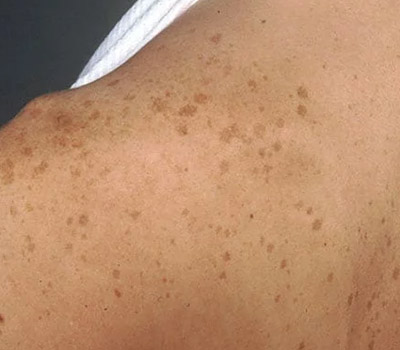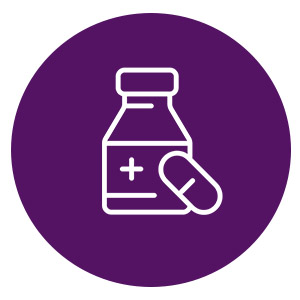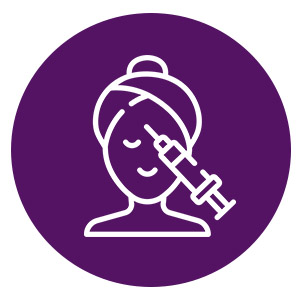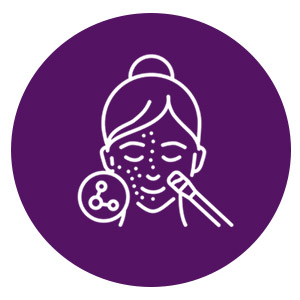What is pigmentation?
Pigmentation is a skin condition where parts of the skin start discoloration. This is caused due to the excessive production of the pigment melanin. This pigment gives our skin, hair, and eyes unique hues. If there is any imbalance in melanin production it leads to pigmentation related issues in the body.
Hyperpigmentation is usually caused due to exposure to the sun, hormonal changes, acne scars, or even skin inflammation. This makes certain areas of skin to become darker than the surrounding skin.
However, in the case of hypopigmentation, the skin becomes lighter than the surrounding skin, causing lighter skin patches. Skin conditions like vitiligo, albinism, and certain types of fungal infections can lead to hypopigmentation.
Pigmentation concerns can affect anyone regardless of age or skin type. They can be aesthetically bothersome, leading to a lack of confidence and self-esteem. Fortunately, there are various pigmentation treatments available that aim to restore a more even skin tone.
If you experience any of the above-mentioned skin conditions, it is recommended to consult a dermatologist. Dermatologists analyze your condition using various tests and recommend the best pigmentation treatment in Chennai.
If you are dealing with pigmentation issues, it is advisable to consult with a dermatologist or skin specialist who can assess your condition and recommend the best pigmentation treatment in Chennai.
Say Goodbye to Pigmentation
OR
Difference between Pigmentation and Hyperpigmentation:
Types of pigmentation

Melasma
Melasma is a common type of pigmentation characterized by brown or greyish patches on the face, typically affecting women during pregnancy or due to hormonal changes.

Age Spots
Also known as liver spots or solar lentigines, age spots are small, flat areas of increased pigmentation that usually appear on areas frequently exposed to the sun, such as the face, hands, and shoulders.

Universal Vitiligo
This type of pigmentation occurs after skin inflammation or injury, such as acne, eczema, or cuts. It appears as dark spots or patches that linger after the initial irritation or damage has healed.
Causes for Pigmentation

Sun exposure: Overexposure to the sun’s UV rays can trigger an increase in melanin production, leading to pigmentation.

Hormonal changes: Imbalances in the hormones such as estrogen, or during pregnancy can also lead to hyperpigmentation.

Inflammatory skin conditions: Skin conditions like acne, eczema, etc can also lead to hyperpigmentation.

Genetics: Certain genetic factors can contribute to pigmentation disorders, making individuals more prone to developing pigmentation issues.

Medications: Every medicine does not work for everybody. Some of these medications might lead to pigmentation.
Skin Pigmentation Treatment in Chennai At Dr. Health Clinic

Intense Pulsed Light (IPL)
It is a non-invasive cosmetic treatment that uses broad-spectrum light to address a range of skin concerns. These treatments work by emitting high-intensity beams of light, these pulses target various chromophores in the skin such as melanin and hemoglobin, and tackle them without damaging the surrounding tissue. This is ideal for treating skin conditions such as pigmentation issues, redness, and vascular lesions. The light energy heats and breaks down the targeted cells, stimulating the body’s natural healing response and promoting the production of new collagen. IPL treatments are versatile, and customizable, and can be performed on different areas of the body to achieve smoother, more youthful-looking skin.

Mesotherapy
Mesotherapy is a non-surgical treatment that utilizes a combination of unique pharmaceutical ingredients, natural medications, plant extracts, and vitamins. These are injected into the middle layer of the skin using a fine needle.Mesotherapy will effectively address various skin conditions such as melasma, freckles post-inflammotary hyperpigmentation. The treatment helps inhibit melanin production, rebuild collagen fibres, and rejuvenate the skin. Optimal results are achieved with 3-5 sessions at regular intervals.

Chemical Peels
Chemical peels involve the application of a chemical solution to remove damaged skin cells, resulting in skin exfoliation. There are three main types of peels available in the market they are superficial peels, medium peels, and deep peels. This is a non-invasive procedure and lasts around 30-40 minutes. It effectively refreshes the skin, promoting a more youthful appearance. Multiple sessions, usually 6-8 with 15-day intervals, may be required for desired results.

Microdermabrasion
Microdermabrasion is a gentle exfoliation method that removes the surface layer of the skin, allowing for better penetration of active ingredients. It promotes cell revitalization, improves collagen production, and enhances skin elasticity and tone. Protect your skin from the sun by using a range of broad-spectrum sunscreen lotions and protective clothing to fight pigmentation.

Fractional CO2
Fractional CO2 is a non-surgical treatment used to improve skin texture, reduce wrinkles, and address blotchiness.
Why Dr. Health For Pigmentation Treatment
Our Patients Reviews
Just wanted to share my experience as it has helped clear a good deal of my melasma. My melasma covered my forehead, a portion of both cheeks and my upper lip. I had been living with it for nearly three years and have dedicated the last two years to combating it in earnest. The most challenging area has been the upper lip however it too has lightened considerably. Those of you who live with the dreaded melasma know what happens when you spend too much time in the sun. The lip pigmentation treatment in Chennai, I took with Dr. Pranjal has greatly decreased my melasma and now it is far easier to cover with simple makeup. The mask that she prescribed removed the superficial layer each time thus allowing the medication to penetrate deeper. The treatment has improved the texture of my skin so overall my skin appears healthier.
Best results for skin pigmentaion. I have uneven skin tone. My skin is cured by 90% now. I am getting married in 2 months, hopefully it will fully go by then.
After years of suffering from Melasma, spending lots of money, time and seeing many dermatologists with very little result, I consulted Dr Pranjal Shamsher out of desperation but was not hoping for much. But her medicines and treatment turned out to be very secure, effective and the patient can see obvious results in a few days, of course depending on the patient’s skin condition. I have been quite pleased with her treatment and have noticed quite a change in my skin. The follow up home treatment and packs and creams are also doing well with my skin.


